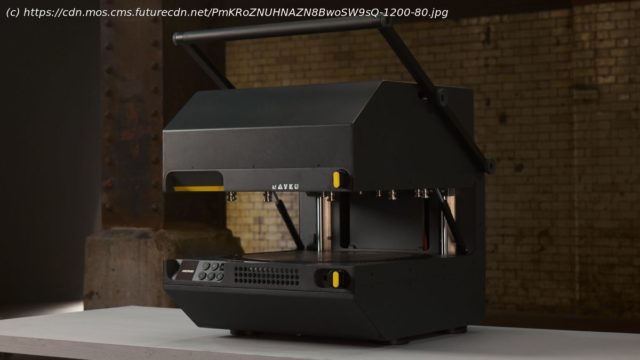Designed to optimize product manufacturing and prototyping, the Multiplier by Mayku could change batch production forever.
Pressure forming might not be the first thing that comes to mind when you think of manufacturing, but the Mayku Multiplier has its sights set on bringing this technology to small to mid-sized businesses and creatives. Typically reserved for larger production lines, pressure forming is a process where a large sheet of thermo-reactive material is heated and formed around an object to create a mold that can then be used to duplicate the object out of materials like plaster, resin or even food. Not only does the Multiplier make this available to everyday consumers, but it uses an array of different mold materials to suit different environments and circumstances. Mayku, the desktop factory company behind the Multiplier announced, „These days product manufacturing is too expensive and complicated for the vast majority of people. With this in mind, Mayku is aiming to change the way we think about the experience and output of making by building machines anyone can use at home or in the office.“ The Multiplier will be available for general preorder from October 5 directly via the Mayku website, and if you’re keen, you can grab one for an early bird deal of $1,999 / £1,449 (around AU$2,700), otherwise, the standard price is $4,999 / £3,499 (around AU$6,750). It’s far from cheap, but an industrial-grade machine would cost far more, and the only similar direct-to-consumer product we could find on the market is the Mayku Form Box, another product from the same brand that introduced vacuum forming to the desktop space. Mayku claims that the Multiplier molds complex, detailed shapes by applying pressure equivalent to that of four elephants (four tonnes of force) to a single material sheet. You can then use this sheet as a mold, eliminating extremely time-consuming and laborious tasks from traditional mold making in which several steps must be taken, such as taking negatives of the product you wish to replicate and then manually casting this in your required material.
Start
United States
USA — software Meet the Mayku Multiplier: the ultimate machine for creative businesses






